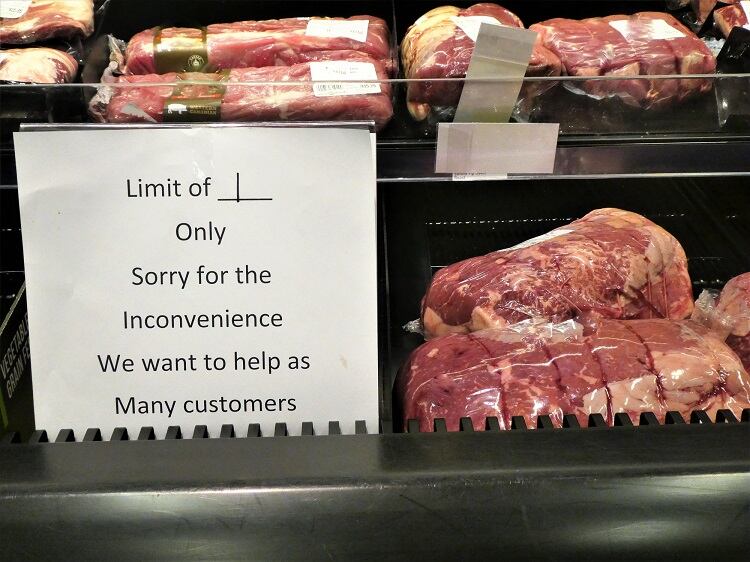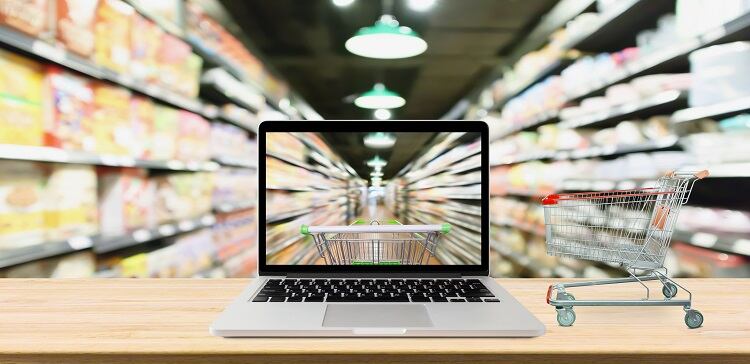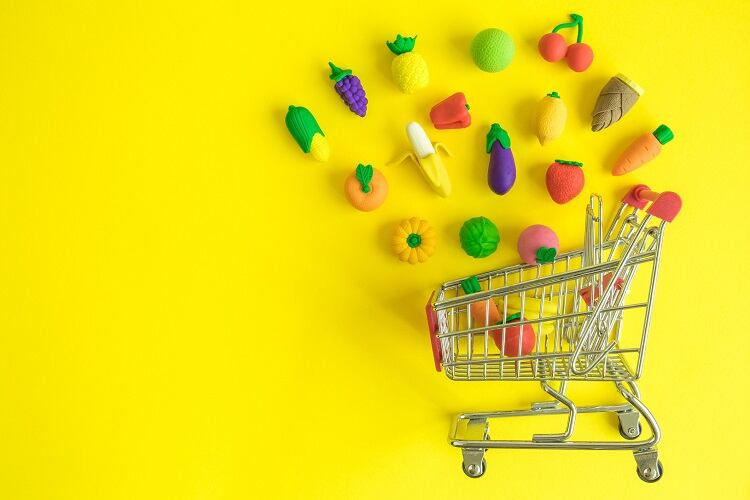2020 certainly challenged the retail sector. Less than 12 months ago, supermarkets were struggling to keep their shelves full as shoppers stockpiled staple products en masse.
As the coronavirus pandemic swept Europe, the sector was also forced to implement social distancing procedures – with many retailers altering their in-store infrastructure to protect employees and customers alike.
Challenges have not abated, suggest retail experts, who predict supermarkets will be forced to deal with some of the old – and indeed, some new – obstacles in 2021.
FoodNavigator also wanted to know what role bricks-and-mortar will play in the coming months, and whether e-commerce will continue to impact consumer shopping behaviours.
Key challenges on the horizon
The rate of change in the retail sector has been ‘unprecedented’ in the past 12 months, according to Retail Insight CEO Paul Boyle, who helps retailers to ‘sell more and lose less’ with the use of algorithms, data analytics and sector expertise. “I don’t think that pace is going to slow down any time soon.”
Therefore, the CEO suggested, many of the challenges faced by the industry in 2020 will continue into 2021. The key challenge remains looking after consumer needs, he told FoodNavigator.
“COVID-19 has accelerated the arrival of shopper trends and behaviours that retailers had always thought would come, but have now landed with a bang. The immediate challenge is, as it always has been, servicing shopper and consumer needs. It’s just that these needs have shifted so significantly overnight and this is forcing a shift in operating models which must now change at scale.”

The elephant in the room here is the economic recession. Boyle stressed consumers will be focusing on cost, “but let’s hope we see a reacceleration in spending in 2021”.
Current economic hardships, which are ‘growing globally’, is also on Kara Nielsen’s radar. As Director of Food & Drink at consumer trend forecaster WGSN, Nielsen told this publication that shoppers with reduced and limited incomes will look for value-oriented products, price deals, and affordable food staples.
“The reduction in SKUs that already happened may need to continue if shoppers turn to centre-store non-perishables, while affordable meat, produce and dairy products will attract more attention than premium options.”
Bricks-and-mortar in omnichannel shopping
Having observed an unparalleled surge in e-commerce this year, one would be forgiven for questioning the future of bricks-and-mortar in the retail sector.
However, Digital Shelf Analyst at data insight firm Edge By Ascential, Chris Elliot, believes bricks-and-mortar will continue to play a significant role going forward – albeit in a modified capacity.
“We’ll certainly see a continued shift towards omnichannel shopping and this means that retailers will need to adapt their store formats in order to cater towards this change,” he told FoodNavigator. “There will be a greater need for retailers to drive excitement and inspiration in-store through the greater use of digital touchpoints, as well as via exclusive products and offers to drive differentiation and retention in-store.”
One way that supermarkets are responding to changing consumer behaviours – notably the decline in demand for traditional deli counters – is by launching new concepts that ‘excite’ consumers around fresh food again, we were told. “This is being led by the likes of Sainsbury’s and Morrisons, who recently launched new ‘market’ style formats, and this should also be supported via an online offering.”

Retail Insight’s Boyle echoes Elliot’s prediction that the bricks-and-mortar store has an important role to play in omnichannel shopping. “We may be shopping for more groceries online, but we may even see this slightly rebound once we’re through the worst of COVID-19. With retailers struggling with this increased online demand, their stores can work with e-commerce as micro-fulfilment centres.”
The ‘inarguable truth’, according to Boyle, is that supermarkets are always built near people. This makes them the ideal location from which to fulfil customer orders. “Bricks-and-mortar stores remain a crucial part of the retail supply and demand chain, and therefore integral to the success and efficiency of the online operation this year and beyond.”
Concerning the adaption of bricks-and-mortar stores to better cope with the coronavirus pandemic, WGSN’s Nielsen said store layouts will ‘likely’ have to change, to add wider aisles. Prepared food sections will be repurposed for other products, she predicted.
“To drive more traffic to the store itself, retailers should continue exploring safety measures, special shopping hours for at-risk consumers, and reassurances that products on sale will be available over multiple days since people can’t get to a store so often,” she added.
The rise and rise of e-commerce?
While the ‘secular tailwinds have been there for some time’, COVID-19 has ‘felt more like jet propulsion’ for the demand on e-commerce, said Retail Insight’s Boyle.
Indeed, consumers have increasingly turned to digital channels to service needs during the pandemic. However, not all needs were met: “We’ve seen many of the food and grocery retailers, if not all, struggle to offer delivery or pickup slots to shoppers through the pandemic and have now massively grown these labour-intensive operations.
“E-commerce doesn’t need a marketing department, we’re all there already, but it does need some data and insight to power its operating model to ensure that retailers are delivering for their customers, profitably.”
Edge By Ascential’s Elliot is similarly sure of e-commerce’s important role as we enter 2021. We’ve become more reliant on e-commerce as a result of the pandemic, he told this publication, “and it’s sure to continue to have a significant role in our shopping behaviours going forward”.
For this reason, Elliot suggests it is crucial for both brands and retailers to ensure they are getting their product listings right, in order to maximise the opportunities online. “This means including the correct keywords so that customers can find the product easily when searching, to having the correct imagery, or driving excitement through innovative experiences via apps or through the use of AR technology.”

WGSN’s Nielsen similarly noted that a risk of boosted reliance on e-commerce could hinder some brands’ presence. With more online shopping, smaller entrepreneurial brands risk ‘getting lost in the crowd’, she explained, along with new products and even impulse purchases shoppers see when visiting stores in person.
“Retailers and brands will need to improve the online shopping experience with ways for shoppers to discover them,” she told us. “This could be separate marketing strategies that lead consumers to a shopping site, sections of a website with a gallery of new products to quickly browse, a section for small brands and other engagement tools – short video product demos, for example – that connect with harried shoppers.”
WSGN’s Kara Nielsen, Retail Insight’s Paul Boyle, and Edge By Ascential’s Chris Elliot shared their 2021 predictions on food and sustainability in the retail sector here.




